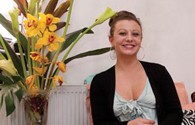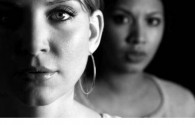
Theme
Skills and Employment
This theme explores the issues surrounding employment and skills for women who are homeless or at risk of homelessness. It is being led by Expert Group member Baroness Stedman-Scott, Chief Executive of Tomorrow’s People. Read the theme round-up here.
In her blog, Baroness Stedman-Scott writes “The potential for meaningful occupation, training and employment to boost self esteem and help women’s recovery from homelessness cannot be underestimated. We, therefore, need to get it right.
“Throughout the Rebuilding Shattered Lives Campaign so far, the debate about women only versus mixed services has been evident in every theme. Within the employment and skills sector we know there are good women only support services out there, as well as mixed programmes that are gender aware and recognise the particular needs and ambitions of their female clients. We need to gather this evidence together to influence policy and practice and improve the training and employment support available to homeless women.”
If you have already joined the campaign, please log in to submit evidence. If you are not already a member, please click here to register.
How do we make sure women get the right help, at the right time? We want to hear from practitioners on the ground and from women using services themselves, about what works and what support is missing.
In particular, we want to hear about:
- Specialist employment and skills support for women at risk of or experiencing homelessness
- Literacy / numeracy support
- Services that support with childcare
- Programmes that build confidence
- Mainstream training and work schemes that encourage and facilitate access for homeless women
Please also submit any relevant research so we can gather this together to improve the support out there for women.
Theme started on: 09 Sep 2013
21 Submissions
The topic ‘Skills and Employment’ is closed to new replies.
Internet highlights
- UK Online Casinos
- Non Gamstop Casinos UK
- Nouveaux Casinos En Ligne
- Casinos Not On Gamstop
- Casinos Not On Gamstop
- Casino Sites Not On Gamstop
- Casino Sites Not On Gamstop
- Casino En Ligne
- Non Gamstop Casino Sites UK
- Fastest Payout Online Casino
- UK Online Casinos Not On Gamstop
- Non Gamstop Casino
- Casino Online Non Aams
- Casino Online Sin Licencia España
- Casinos Sin KYC
- Reputable Non Gamstop Casinos
- Casino Sites UK
- Non Gamstop Casino UK
- Sites Not On Gamstop
- UK Casinos Not On Gamstop
- Sites Not On Gamstop
- Sites Not On Gamstop
- Lista Casino Non Aams
- Casinos Not On Gamstop
- Casinos Not On Gamstop
- Casino Non Aams
- Meilleur Site Casino En Ligne Belgique
- Meilleur Casino En Ligne Belgique
- Migliori Casino Online
- Casino Visa
- Sites De Paris Sportifs
- คาสิโนคริปโตไทย
- 카지노 사이트 추천
- Bookmaker Non Aams
- Meilleur Casino En Ligne
- Casino Bitcoin
- Casino En Ligne
- Meilleur Casino En Ligne
- Casino Crypto



